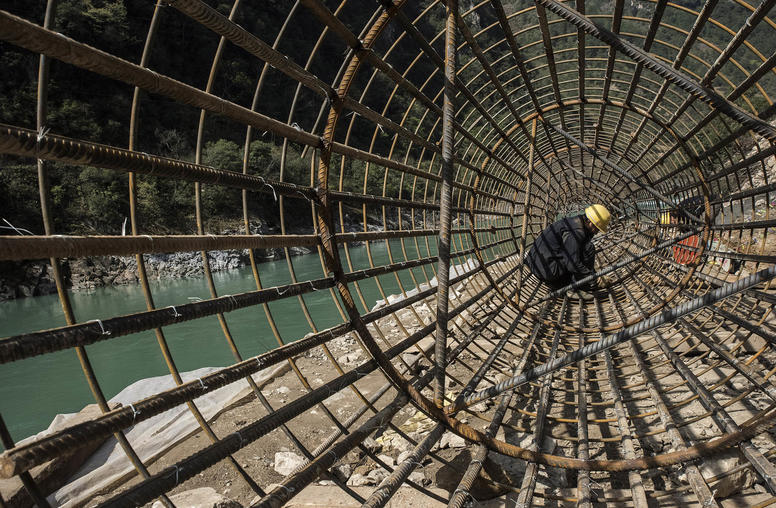Publications
Articles, publications, books, tools and multimedia features from the U.S. Institute of Peace provide the latest news, analysis, research findings, practitioner guides and reports, all related to the conflict zones and issues that are at the center of the Institute’s work to prevent and reduce violent conflict.

Is China Getting Serious About Crime on the ‘Belt and Road’?
As China’s leading foreign policy project, its Belt and Road Initiative (BRI) should be easy to understand. Yet since its inception in 2013, the BRI has remained remarkably opaque. The government publishes no criteria for approving BRI projects or comprehensive lists of authorized ones. Consequently, a range of Chinese investors—including some linked to organized crime—claim an association with the signature program of China’s leader, Xi Jinping. In host countries, this free-riding identification can threaten governance and stability, while further damaging the international community’s ability to check the spread of related criminal activity.

Could Algeria’s Referendum Lead to Democratic Progress or Uphold Status Quo?
Algerians took to the streets in February 2019 to protest the re-election bid of longtime authoritarian president Abdelaziz Bouteflika. Those protests—which came to be known as the Hirak movement and resulted in Bouteflika’s resignation in April of that year—evolved quickly to calls for a fundamental overhaul of the country’s political system. Few real changes have been made since. This Sunday, Algeria will hold a referendum on constitutional amendments to ostensibly bolster the country’s democracy. But, the Hirak says the constitutional changes do not go far enough. USIP’S Tom Hill looks at why the constitutional amendments have stirred tension with the opposition, the movement’s struggles to coalesce behind specific demands, and the role of Algeria’s military and floundering economy in the transition.
Internet Freedom and Social Media
Following the massive protests in Egypt, Tunisia and elsewhere in the Middle East, Secretary of State Hillary Rodham Clinton spoke about the importance of Internet freedom and social media. USIP’s Sheldon Himelfarb examines how – and how much – the Internet can impact politics and be a force for freedom.
Event Wrap: Making Peace in Afghanistan
More than a year into the “surge” of American and international military forces in Afghanistan, there are only mixed results on the ground, say experts. And that, they say, begs the question – who is helping to build the political process on which a final, peaceful resolution can be reached?
Navigating Tricky Transitions in Iraq, Afghanistan
The last American troops will leave Iraq this year, and the first troops will leave Afghanistan starting this summer. That means the civilian side of the U.S. government must step up to assume a greater responsibility in the void the military leaves behind. But is the U.S. government ready to take on this bigger role as the military exits? The answer is: it's far from clear.
Steven Heydemann on Libya
Expert Steven Heydemann discusses how the current events in Libya could impact the region and the history of the U.S.'s relationship with Libya in the wake of recent violence and protests.
Profile and Thanks to United States Institute of Peace Board Member Ann E. Rondeau
USIP board member and president of the National Defense University Ann Rondeau says, "USIP provides 'independent and unduplicated skill sets of those who work overseas to prevent, manage and resolve conflict.'"
The Key to Stability in Afghanistan
Success in Afghanistan has always been tied to the expansion of the Afghan national security forces, experts agree. This news feature recaps the USIP event "Securing Transition: Assessing the Future of the Afghan National Security Forces." The panel discussion took place on February 25, 2011.
Egypt, Tunisia, and the Constitutional Movement
Egyptians and Tunisians are anxiously waiting to see how their aspirations will be realized in the weeks after the historic popular uprisings. While no component of Egyptian or Tunisian society – governance, politics, security, civil society, and economy -- is likely to be spared scrutiny, special attention will necessarily be paid to the constitution.
The Economics of Peace
It’s all about numbers these days--costs, savings, debt, deficit and spending. That’s good news for those who work in the field of international peacebuilding and conflict prevention. We’re the best bargain in town.